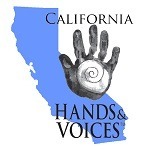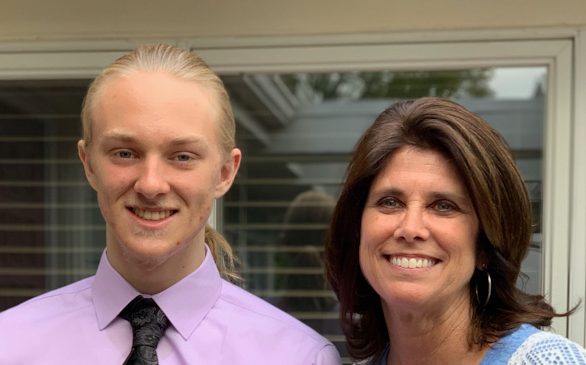I self-identify as….
Hearing
What do you enjoy doing in your free time?
Cooking, paddle boarding, travel, exploring and adventure, music, friends, family.
Please tell us about your earliest years of life related to your hearing, identification etc.
I was diagnosed with mild to moderate loss in one ear, and moderate to severe in the other. As I got older, I went through countless tests with a pioneer in hearing loss – Dr. Maurice Schiff. I was also particularly susceptible to ear infections which had to be manually treated in Dr. Schiff’s office. Very painful and uncomfortable. They did try to determine the genesis for the loss including testing for Rh+ blood factors, but that appeared to be negative. My Mom believes she had either an aunt or a grandmother with hearing loss that might have contributed, but I believe it was due to me being her first pregnancy at age 40. But honestly, no one knows for sure. My hearing loss deteriorated as I got older and my speech comprehension was terrible by my early/mid 30’s. I was actually tested and qualified for an implant at age 39, but I waited 4 years to get an implant partially due to waiting on the constantly changing/improving technology and partially because I was having a hard time accepting how my life might change – better or worse -after surgery. I spent a lot of time researching and talking to people and staff from Cochlear and Advanced Bionics before making a decision (AB).
Please share about your relationship with your family and inclusion tips that you have found helpful.
I’ve always had a great relationship with my family, but my hearing loss was never really talked about or dealt with as a family. My Mom and I had our own special relationship around my hearing and the countless doctor’s appointments and that’s pretty much where it remained. How I remember countless hours being passed in the waiting room by looking for the Hidden Pictures in the Highlights Magazine. I think my father might have been embarrassed about my hearing loss, and uncertain how to support me. He often told me if I could just focus on “mind over matter” I might be able to hear better. I used to think that was punitive and he was in denial, but as I’ve gotten older I wonder if that wasn’t his way to try and offer up a “solution” to hear better since we didn’t have a lot of options available to us at the time. Since we didn’t really talk about it or deal with it, I can’t speak DHH friendly family activities. I will say that for the most part, I was always treated as if I could do anything I set my mind to.
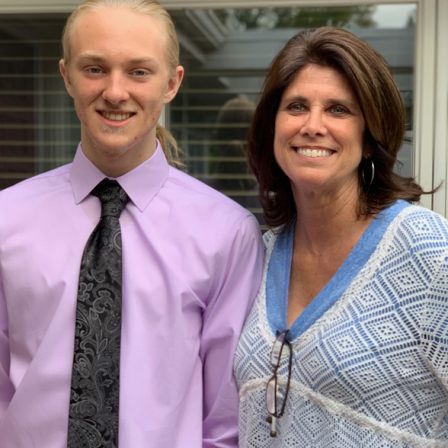
Please share a little about your education placement & extracurricular activities as a youth.
To my knowledge, we didn’t have special accommodations and supports when I was in school. I was mostly told to sit in front of the class, and ask a fellow student if they would lend me their notes. The teachers were sympathetic, but not really trained in alternative learning options. We didn’t have anything like IEPs and 504s. I didn’t like wearing hearing aids, so I basically powered through High School and college on sheer determination and a prayer. I definitely missed a lot in the classroom and had to work twice as hard to graduate, but I didn’t know any other way so it seemed normal. I did bounce around to several elementary schools, but given that I was pretty much on my own with each new teacher that didn’t affect things greatly. It actually made me more adaptable and flexible to constantly changing environments. I was incredibly involved in athletics in high school and college. I played tennis, volleyball, basketball, and field hockey in high school, and volleyball and basketball in college. I was still not wearing hearing aids at the time, so I couldn’t hear a lot on the playing field. Oh well! I still played, was decent at it, and felt it was important to my development no matter what.
Please tell us about your relationships with DHH peers as a youth and how they impacted your life.
I had no DHH peeps in my youth or even in college. I was incredibly fortunate to find the Children’s Center for Hearing and Talking (CCHAT) in Encinitas almost 17+ years ago which led me to the Deaf and Hard of Hearing Family Camp at Camp Marston in Julian, California where I have volunteered and attended almost since inception. CCHAT and DHH Camp were my first exposure to cochlear implants, sibling relationships, supportive practices and more. Most of my “deaf” education has come through DHH Camp.
Please share how you/your parents prepared for a new school year and any Tips for Teachers that worked for you.
I didn’t have these options when I was in school, but I highly recommend the California Hands & Voices Deaf & Hard of Hearing Family Camp at Camp Marston, Julian California for education, fun, and like-minded families. Best experience for families ever.
What type of technology, apps or products for Deaf and Hard of Hearing individuals do you use?
Even though my hearing loss was moderate at birth and got progressively worse, I didn’t start wearing a hearing aid until I was 26. It took me another 17 years before I got a cochlear implant at the age of 43. The implant changed my life for the better. I was finally able to use the phone again for the first time in 20+ years. I can hear conversations, people speaking behind me and more. Before my implant, I relied on lip reading, text and email almost exclusively. Since I ran a medium-sized firm, my assistant would listen in on all my calls, mouth the information to me, and then allow for me to respond. I’ve always been a lip reader and this was the only way I could handle conference calls. Exhausted her though! I always made sure she realized how amazing it was she was willing to do that for me. I did use a caption service on my work computer for awhile when I had calls, but it was very inadequate and inaccurate at the time. I still rely on text and email the most, but I am comfortable on the phone with my implant. I also use a vibrating alarm clock – sometimes two – when necessary.
Can you tell us a little about your college experience and how did you prepare for college? Any tips?
I knew very few deaf or hard of hearing students in colleges and the ones I did know all used ASL. Since I had never been exposed to ASL and was not well-versed in it, I was not included within that circle of students. I did take ASL a few years after I graduated, but it was difficult to become proficient without other ASL practitioners to communicate with.
Please share a little about your career and any tips for someone considering a similar career?
I have to say honestly that to this day I don’t exactly know how my hearing loss has affected my career choices and outcomes. I will say that I was always deathly afraid of the phone until my implant at age 43, and that certainly shaped some career decision-making. And although I’ve had a fairly successful corporate and non-profit CEO career, I was perhaps less ambitious and took less risks than if I had been more confident in my hearing and my abilities. I really wanted to get my pilot’s license, but didn’t feel secure flying with my hearing. I learned to rely on my staff, my lip reading, and whatever tools I could grab such as captioning, text and email. Many people never knew I had a hearing loss and it was excruciatingly painful for me to mention it when I was younger. It took until my early 30s before I was able to offer it up voluntarily and ask for some assistance, and then I regretted having not been more upfront sooner.
Please tell us about your relationships with DHH peers as an adult. When meeting a new person what script have you found helpful when telling them that you are DHH?
Due to the fact that I was born hearing and don’t know ASL, I’ve always found it difficult to be accepted into the deaf community despite many attempts to do so. As I get older, more and more of my friends are dealing with age-related hearing loss and are just beginning to understand the world that many of us have lived in for most of our lifetimes. I am eternally grateful to the DHH Camp for connecting me to the deaf community and helping me understand the complex deaf and hard of hearing world we are all trying to navigate. I don’t typically immediately offer up my hearing loss unless I can see a potential obstacle in communication. If that happens, I have no problem at all offering up my story and asking for assistance in any given situation. It’s one of the benefits of getting older 🙂 But I do wish I had been more willing to share my hearing loss in my 20s.
What were some of strategies that your parents, teachers or DHH role models taught you that helped you to be a confident independent person?
Sounds lovely and it’s definitely needed, but I did not have this sort of guidance and support in my youth.
What accomplishments are you most proud of in your life?
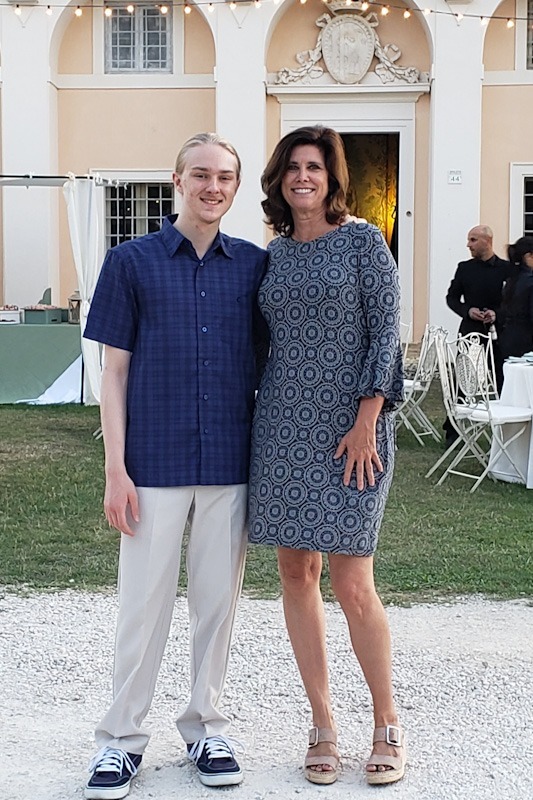
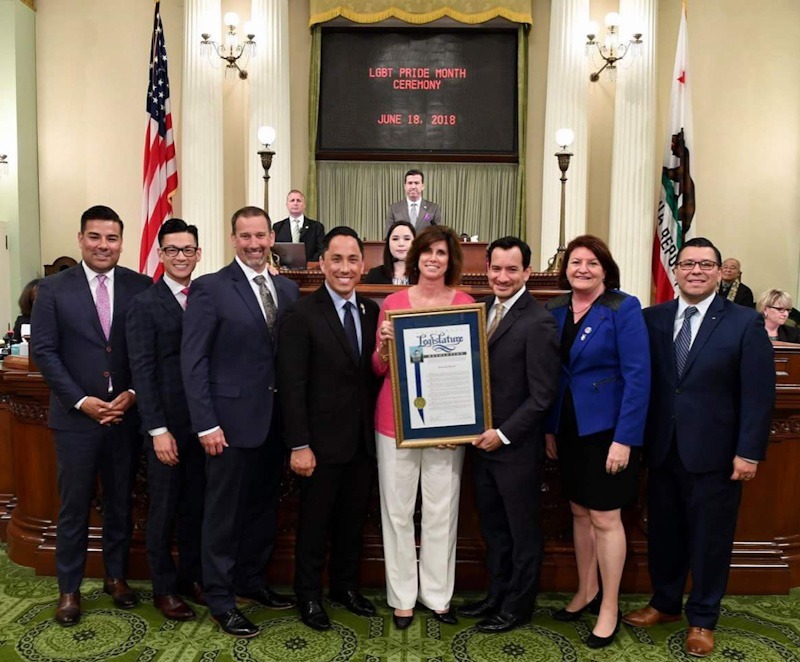
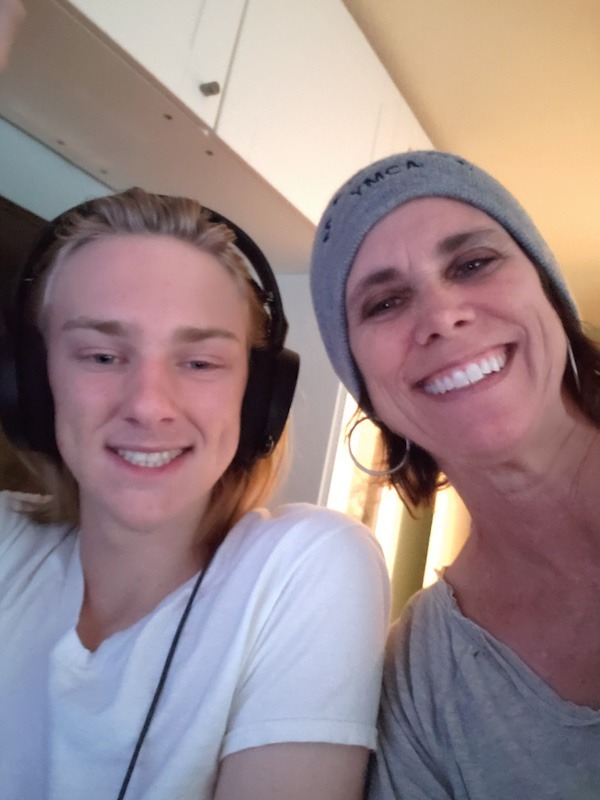
Graduating college, having had a very successful career, my work with DHH Camp and ElderHelp of San Diego, and successful raising an amazing son to the age of 19.
What tips and strategies do you have for communicating with a DHH person?
The usual. Speak slowly, but not loudly. Don’t cover your mouth. Face me. Follow up any conversation with minutes or an email. Take notes for me!
Favorite quote? Final comments?
You gain strength, courage and confidence by every experience in which you really stop to look fear in the face…I can take the next thing that comes along. You must do the thing that you cannot do.” Eleanor Roosevelt
Let’s go out with a bang! Complete this sentence to debunk a misconception about Deaf or Hard of Hearing people. “People may be surprised to know that I…..”
Love to sing no matter what I sound like. It’s for my joy and happiness and not anyone else 🙂 l
